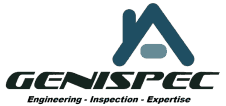Many real estate investors report that undetected structural defects during the initial purchase of their commercial building have negatively impacted their rental income. Indeed, commercial buildings that are not inspected or poorly managed can lead to unexpected costs and significant financial losses for you and your business.
In this article, we will explore 5 essential keys to a successful commercial real estate investment, including two crucial aspects: conducting a commercial building inspection and implementing a reserve fund study. These best practices can help you avoid costly common mistakes and therefore make sure that your long term real estate assets are secure and profitable.

1. Conduct a thorough commercial building inspection
In the case of purchasing a building, a commercial building inspection is the first step. This allows you to ensure the viability and safety of your real estate purchase.
A thorough inspection helps detect hidden issues such as defects in structural elements, electrical systems, and even water leaks. A detailed inspection report provides you with the necessary information to make informed decisions and address building deficiencies before the problem worsens and increases your repair costs.
At Genispec, our commercial building inspection experts ensure that every detail is taken into account. This evaluation includes a meticulous analysis to ensure that your real estate investment meets the standards of Quebec’s Building Code (RBQ).
2. Develop a reserve fund study
In the case of an investment in a condominium, a reserve fund study is essential. This study allows you to anticipate maintenance costs. Moreover, since the creation of Law 16, this study has become mandatory.
A reserve fund study is an essential document that details the physical condition of a building, including an estimate of costs for necessary repairs and maintenance. A well-conducted reserve fund study helps you plan long-term expenses, such as roof repairs or upgrading heating and air conditioning systems.
By maintaining a study with the experts at Genispec, all of whom are members of the Quebec Order of Engineers (OIQ), you protect your investment from unexpected financial surprises.
3. Understand the local regulations and compliance standards
Commercial real estate in Montreal and its surroundings is subject to strict rules established by the RBQ and other local regulators. There are also new laws such as Law 16 and Law 122. These directly impact the management of commercial real estate investments.
To avoid fines or business disruptions, it is essential that your building complies with all safety standards. This includes building codes, electrical compliance, fire safety, and many other legal obligations.
Working with a company experienced in the field, like Genispec, ensures that you take no risks!
4. Master your specific real estate market
Investing in commercial real estate requires in-depth knowledge of the market in which you operate. This includes not only evaluating current opportunities but also forecasting rental demand, local economic trends, and the future value of properties.
Conducting extensive research and consulting with a real estate consultant or manager can be a valuable asset in better understanding the market and therefore maximizing your return on investment (ROI).
5. Optimize the management of your property
Proactive management of a commercial building is essential for its long-term success. This includes tenant management, preventive maintenance, and ongoing property improvements.
Reactive management can lead to rapid deterioration of the facility’s quality, which could deter future tenants and decrease your property’s value.
Using professional project management services allows you to focus on profitability, while specialists handle the meticulous management of maintenance and improvement aspects.
A successful commercial real estate investment relies on careful preparation. By choosing the right partners and following the steps mentioned in this article, you give yourself the best chance of ensuring the viability of your investment.
